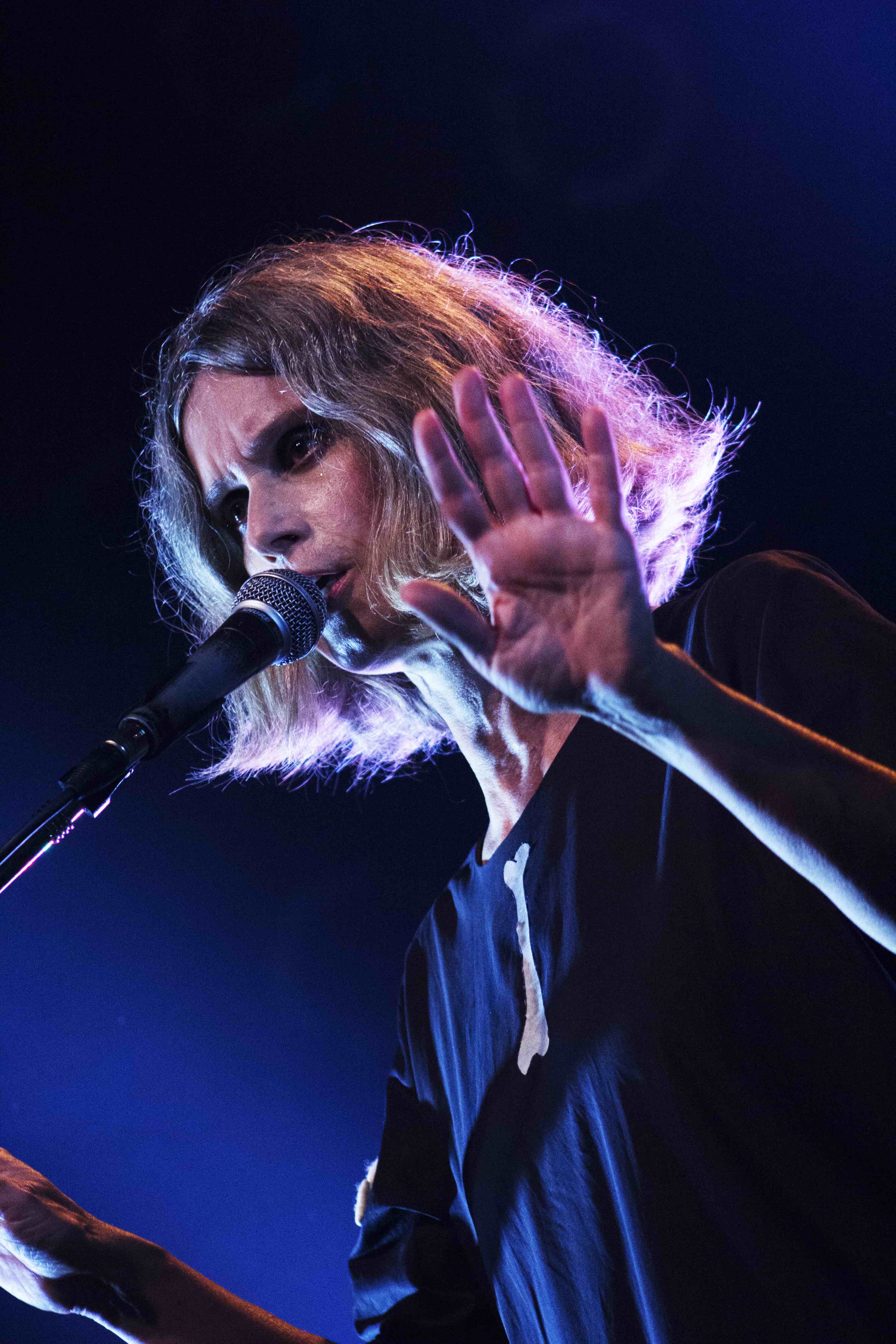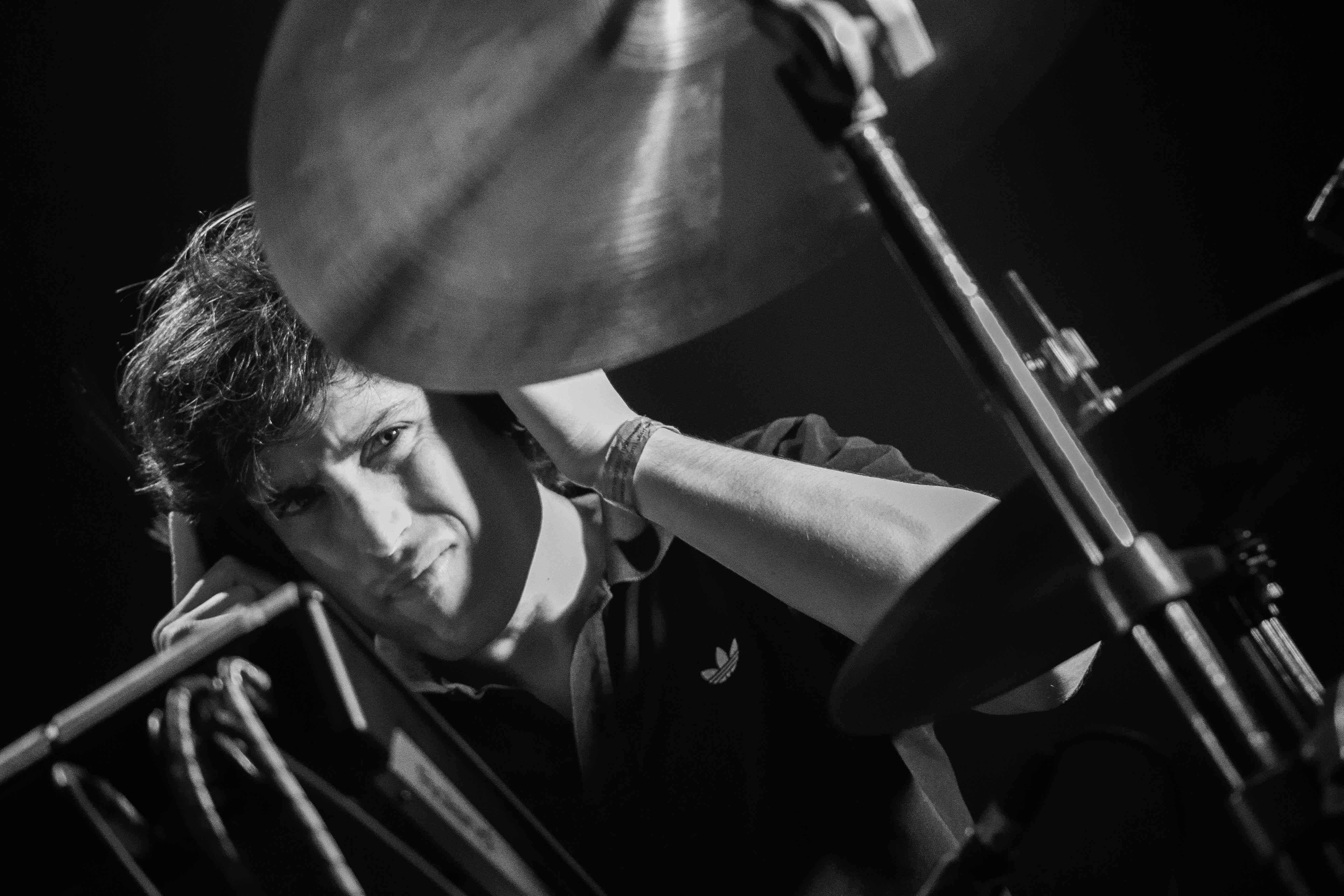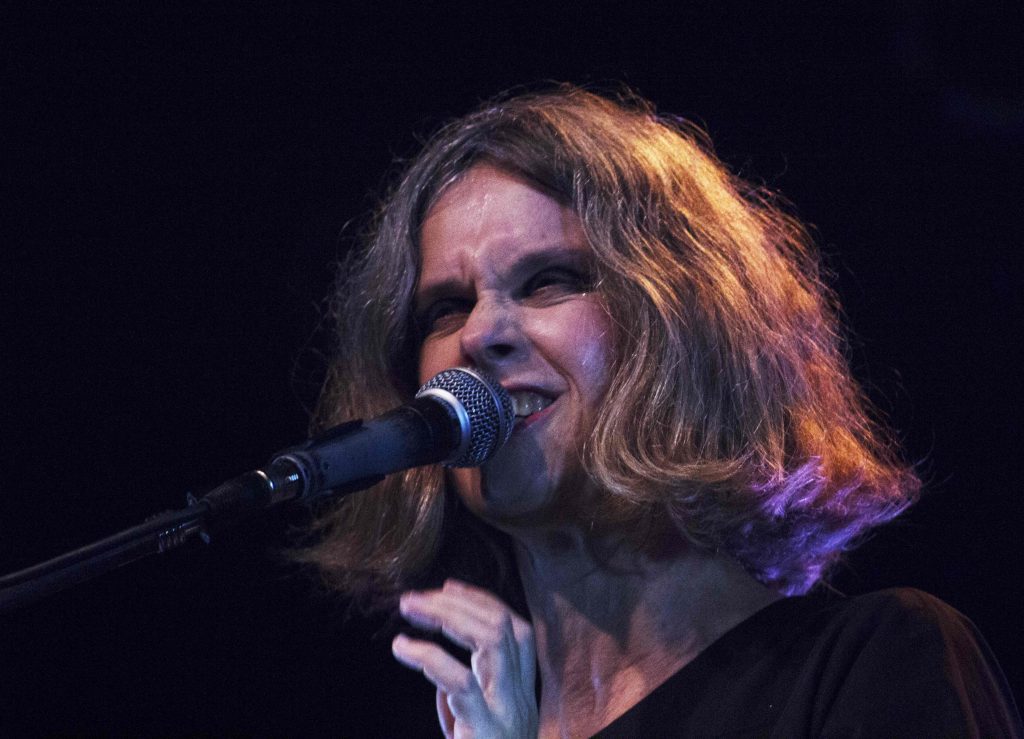Hundreds of kids wearing 90s jackets, mom jeans, and kiddie backpacks are drinking beer and smoking in front of a mural on one of the walls of Buenos Aires’ Niceto Club. On the wall, a mural promotes Juana Molina’s performance of Halo, her seventh album. It’s not common for Molina to launch her album cycles in her home country, so the performance feels particularly special. Over the course of Molina’s decades-long career, she has transformed from whimsical comedian into misunderstood singer and then accomplished industry veteran. When she began her career as a musician, Argentine audiences had difficulty understanding her, a challenge that translated into poorly attended live shows. Many expected her to still be an actress or to somehow make funny music, and instead, she decided to develop a style based on obsession with repetition. She is a heroine, but not for the ones who saw her on TV in the 90s – for a loyal fresh-faced generation of fans.
At Niceto Club, Molina’s performance was a feat of complete control. Through witchy loops, she hypnotized the audience and conjured a sense of the occult. There was an aura of respect, but also warmth and moments of ecstasy. She wore a dress with bones resembling the album artwork of Halo and stood proudly next to her two bandmates, Odin Schwartz and Diego Lopez de Arcaute. Molina opened with “Cosoco,” the first single from Halo, a playful song that energized the audience with its brisk pace and zigzagging guitar loop.

While it’s true that her music was first acclaimed by international (rather than local) critics, English-language media continues to employ the empty “world music” genre label or the term “folktronica” to describe her work, even when Argentine folklore is distinct from Anglo folk traditions. Comparisons to exotic, creepy creatures are rampant, even if her latest album cover and music videos certainly fuel that analogy. This exoticized portrayal has abstracted her work, as if her music is suspended in another dimension and listeners can only contemplate it from afar, but not empathize with it. English-language media has used the fact that she sings mostly in Spanish to intensify this sense of abstraction.
But as evidenced by this show in Buenos Aires, her Argentine fans have always understood that Molina’s music has physicality and a sense of place. For them, it wasn’t just about just losing their minds in the loops; it was also about experiencing the music with their bodies – Argentines dance, jump, and sing at Juana Molina shows. Buenos Aires fans aren’t passive; they’re deeply involved in what happens onstage. They moved swiftly to the subtle and quiet intensity of “Paraguaya” and the wordless melodies of “A00 B01” or “Wed21.” The energy in the room carried them to liberation, where language was no barrier.
But it’s always during “Un Día” that Juana Molina shows she is the master of looping, leading to the apogee of her performance. “Un Día” is a song of freedom, and the audience responded accordingly. The introductory piano notes and repetition of the phrase “one day, one day” imbued the room with a powerful energy, until there was an abrupt break, and it all suddenly turned silent. Molina flubbed the lyrics, something that often happens at her shows. But rather than halting the performance, Molina replaced the actual words with playful banter about her forgetfulness, imbuing the venue with a sense of intimacy and informality.

For her Halo performance, Juana Molina selected the more upbeat songs from her previous album Wed21. There wasn’t a place for the acoustic tracks of Segundo, Tres cosas, or Son. It was only when she played “Lentísimo” that the stage turned quiet. The focus was on Juana Molina’s melancholy vocals, accompanied only by eerie synths and the occasional cymbal. It was mesmerizing and irrefutably sad, invigorating her music with new loneliness.
The live debut of Halo resembled a community ritual, where Molina acted as a spiritual leader. Molina’s music manages to harmonize what seems disparate in live performance: a sense of intimacy and comfort, where even people attending alone can commune with others.
Juana Molina’s Halo is available now via Crammed Discs.







